
Solo Travel Tips: Embrace the Adventure
The best solo travel tips often are the ones you least expect. Maybe even from the people you’d least expect? But all advice is welcome when venturing to a new place on your own.
Solo travelling isn't for everyone... or so people think. You might be surprised by how much you love it. All you've got to do is know how to do it right!
Included in this guide:
Solo Travel Personas
Many people believe solo travellers are plucky, intrepid wanderers with fearless spirits. Maybe we’ve developed these perceptions due to blockbuster films such as Into the Wild and Eat Pray Love.
But the thing is, you don’t have to be an outrageously confident individual to take part in a solo travel tour. Nor do you have to pack your hiking bag and take to the wilderness for months of solitude.
There are many different types of solo travellers out there today, all with different opinions on the best solo travel destinations. So, why do they do it? How do they do it? And is it something you’d benefit from experiencing? Sit back and read on to find new confidence through our solo travel tips.
5 Solo Travel Tips to Kickstart Your Adventure Right
Solo Travel Tip 1: Have a map and translation app handy on your phone
Solo Travel Tip 2: Update your emergency contact information
Solo Travel Tip 3: Get travel insurance
Solo Travel Tip 4: Keep in contact and let someone know where you are
Solo Travel Tip 5: Avoid paying a single supplement
Solo travel today is totally different to what it was like twenty years ago. You don’t need an impeccable sense of direction, the ability to memorise 20 phone numbers, or a friend who can speak five languages fluently. Although, it never hurts to know local phrases. These may now be considered, in our solo travel guide, as helpful foundations which you can impress with.
Technology has also provided us with increased independence during travel. In many ways, it’s also given solo travellers improved security.
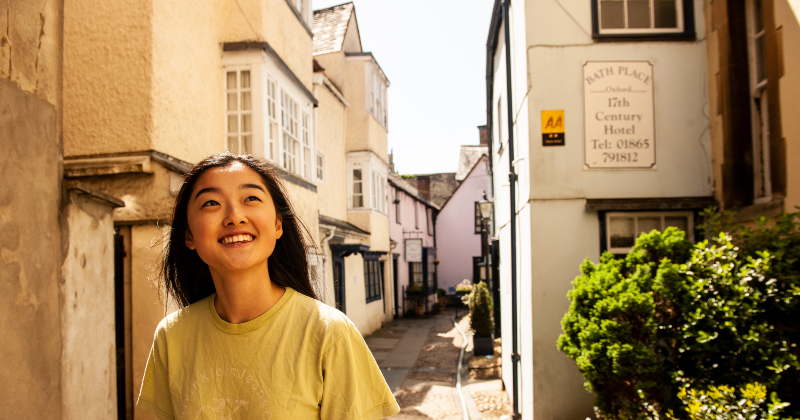
Many first time solo travellers aren’t too worried about getting lost in a European country or running out of phone battery. In fact, they may even enjoy the thrill of it. But if you’re feeling anxious about your first time holidaying alone, we understand. Here are a few of our top tips for travelling solo and stressing less.
Solo Travel Tip 1: Have a Map and Translation App Handy on Your Phone
As a general solo travel tip, it’s always wise to gather your general bearings and learn a few essential phrases in the local language. But you can’t be expected to hold entire metro maps in your head. And as much as we wish we could, mastering several languages is a tricky endeavour. Which is why map and translation apps exist. If anything, they’re for peace of mind when you get lost, or stuck trying to order food at a restaurant. Choose apps that can be downloaded and used offline, such as Google Maps and Google Translate. It’ll save on data if you have a sim card or allow you to travel without one.
Solo travel tip: try using your apps prior to leaving for a new city. Not only can you familiarise yourself with the settings, but you may even discover a new part of your home you haven’t yet explored. How exciting.
Solo Travel Tip 2: Update Your Emergency Contact Information
One of the most important solo travel tips we can share is keeping your emergency contact details up to date. Whether you keep it on your phone or on a piece of paper, you should always carry emergency contact information with you. This includes:
The contact number of your local embassy
Contact number for your travel insurance provider
Contact details for your bank
If you have a smartphone , ensure:
- Your emergency contact (next of kin) can be reached from your locked screen
- You should be able to configure this in your phone settings
- An ICE (in case of emergency) app is also helpful to download. This is a helpful solo travel tip as it’ll allow you to enter your blood type, allergies, ongoing health conditions, and the medications you’re taking.
All this information can be reached from your locked screen and greatly assists paramedics in an emergency.
Not sure of the emergency services number in every country you’re travelling through? Our top solo travel tip is to download an emergency numbers app. The TripWhistle Global SOS app stores the emergency numbers for every country in the world.
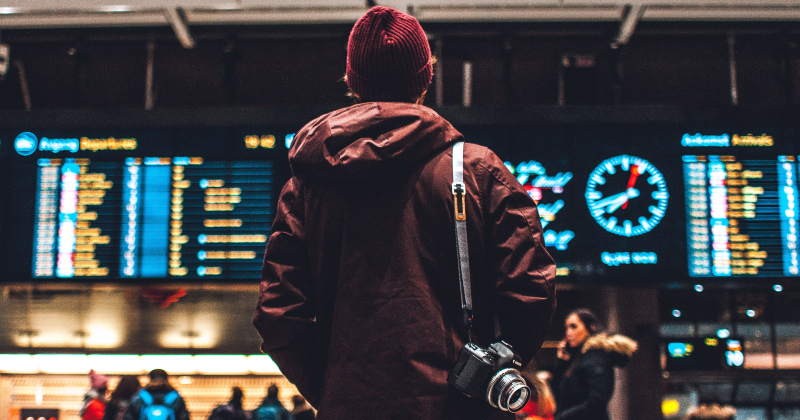
Solo Travel Tip 3: Get Travel Insurance
This brings us to our next solo travel tip. Always. Get. Travel. Insurance. If you need convincing, here’s one compelling reason: it reduces stress and prevents you from inventing elaborate ‘what if’ scenarios, so you can focus on having a good time.
Solo Travel Tip 4: Keep in Contact and Let Someone Know Where You Are
Solo travel tip number 4. We all value privacy but keeping loved ones up to date with where you are is a sensible idea. Especially if you have worried parents. Send them a copy of your travel itinerary or consider downloading something like the Find My Friends app onto your smartphone.
Alternatively, you can let the person at the front desk of your hostel know where you’re headed. Many solo travellers tend to do this if they plan on going on a long hike without phone reception, or out by themselves at night. Taking the time to remember this solo travel tip may just keep you safe.
Solo Travel Tip 5: Avoid Paying a Single Supplement
When travelling solo you may come across instances where you have to pay extra money to book a hotel room with a double bed or a cruise package for one. This is called a single supplement and is often charged when a tour operator or accommodation provider takes bookings on the assumption that a room or cabin will be occupied by two people.
Solo travel tip number 5, look out for this in the small print when you book. And if your tour operator organises your travel accommodation, ask them what options are available for you. They may be able to arrange for you to bunk with other solo travellers on your tour. Some B&Bs also have private single rooms. An important solo travel tip is to ask as you never know what kind of deal you might score.
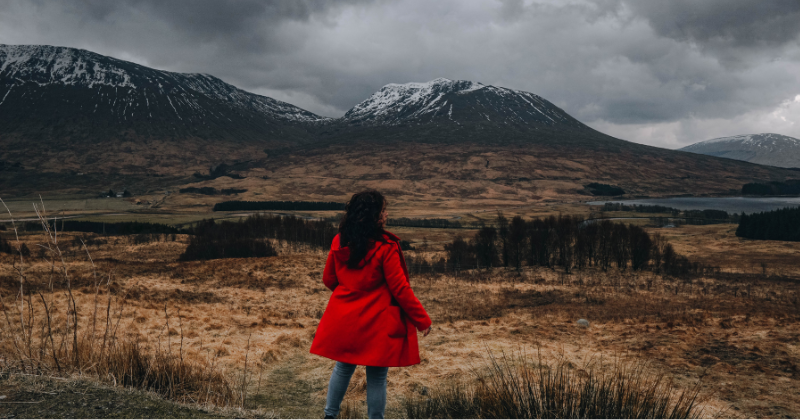
Why Travel Solo?
Amongst all the solo travel top tips, you may wonder why travel alone in the first place? More often than not you’ll fall into one of two categories:
- Travelling solo by choice
- Travelling solo by circumstance
Let’s uncover what these mean so you can get the best tips for your solo travel adventure.
Travelling solo by choice
Despite what many think, travelling solo isn’t the sole domain of single people. Individuals with partners, families and other attachments choose to book a solo holiday. The main reason? Freedom.
Solo travel tip: don’t presume everyone is single or lonely.
We’re talking about freedom to do whatever you want, whenever you want. Eager to walk in the footsteps of your ancestors on a Scotland tour? Maybe the quaint villages on an England tour are calling your name. You can wave goodbye to compromise and follow the “you do you” mantra with help of our solo travel tips.
Tired, exhausted and feeling unsociable? You can hole up in your hotel room and watch local TV for an entire day without feeling bad about it. Want to hike all the way across the city to seek out the best coffee shop instead of going to a museum? Fine, it's up to you. Just be sure to recap our solo travel tips before jetsetting.
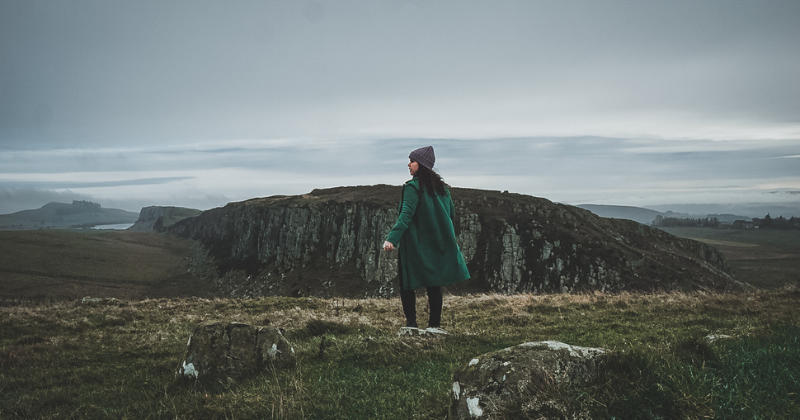
Travelling solo by circumstance
Are you single and unable to find a travel buddy with similar interests to your own? Are you itching for a holiday, but your partner can’t get the time off work? Perhaps you booked a trip with someone only for them to back out at the last minute. There are many scenarios where you're faced with the option to travel solo or not travel at all.
Solo travel may not be for everyone. But you don’t want trepidation to hold you back from discovery, especially in a day and age where holidaying alone is accessible and full of possibilities.
A solo travel tip to remember, you don’t have to do everything by yourself unless you want to. If you’re embarking on a trip alone and feel uneasy about navigating foreign places, you can consider joining a small-group tour. It’s a fantastic way to meet like-minded people and socialise without the obligation to spend every waking moment together. You’ll also experience the peace of mind that comes with travelling as a group and knowing someone will be looking out for you if anything goes awry.
Small-group tours are particularly beneficial for first-time solo travellers who may be nervous about going it alone. However, people who have travelled solo for years also book group excursions to enjoy the balance between solitude and socialising.
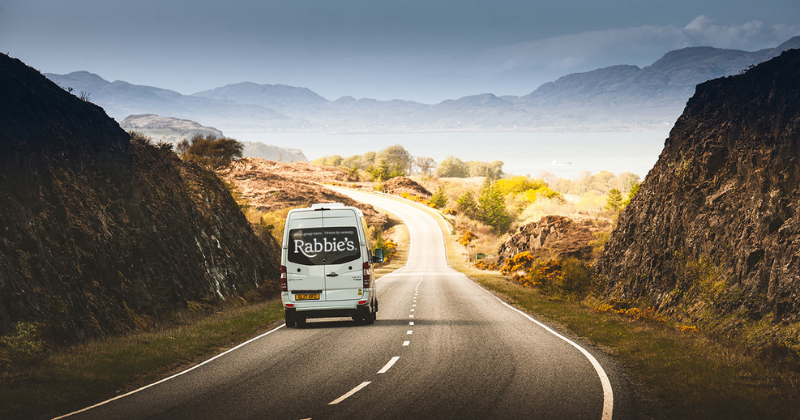
Embracing solo travel on a Rabbie’s Tour.
Our solo travel tips got you excited to see more of the UK, Ireland, and Europe through small-group tours? We have solo travellers of all ages and walks of life embarking on our tours of Europe and the UK every day. Friendly atmospheres. Insightful driver-guides. Memorable stories to take home. What more could you want?
Stay in touch by signing up to our newsletter. You’ll receive updates on our new tours, new departure points and even more insightful reading.






